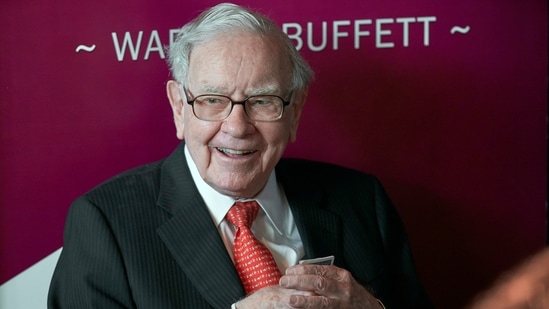How Warren Buffett Safeguarded His Wealth with a Record Cash Reserve Pre-Stock Market Crash
Warren Buffett's Berkshire Hathaway recently faced significant losses as the stock market experienced a sharp downturn. Despite this, Buffett's strategic decision to build substantial cash reserves has played a crucial role in mitigating these losses. This article explores how Buffett's foresight in amassing cash reserves helped protect Berkshire Hathaway during this volatile period.
Berkshire Hathaway's Portfolio Hit by Market Declines
On Monday, Berkshire Hathaway's stock portfolio was hit hard as major holdings like Apple, Bank of America, and Mitsubishi experienced sharp declines. The global stock market sell-off resulted in losses worth approximately $15 billion for Berkshire Hathaway. The company's market capitalization fell by over 3%, bringing it down to $899 billion. Significant stakes in Japanese companies such as Mitsui, Marubeni, and Sumitomo, along with American Express, Moody's, and Kraft Heinz, also saw declines, wiping out hundreds of millions of dollars.
Record Cash Reserves: A Strategic Move
In the last quarter, Berkshire Hathaway reported record cash reserves of $277 billion, largely due to a $76 billion stock sale. This decision to reduce stock market positions and accumulate cash was a deliberate strategy by Warren Buffett to prepare for market volatility amid growing concerns over a potential US recession. Buffett's cautious approach paid off, as these cash reserves provided a buffer against the recent market turmoil.
Impact on Major Holdings
Apple Decision
- Apple, one of Buffett's largest investments, saw its share price drop by more than 7%, resulting in a $5.7 billion loss for Berkshire Hathaway. Buffett's decision to sell nearly half of his Apple stocks indicated his concern about the tech giant's future performance. This move was part of a broader strategy to reduce exposure to tech stocks, which also included declines in other major tech companies like Alphabet, Amazon, Meta, Microsoft, Nvidia, and Tesla.
Bank of America and Mitsubishi
- Bank of America and Mitsubishi, other significant holdings for Berkshire Hathaway, also experienced sharp declines. The reduced valuation of these companies contributed to the overall loss in Berkshire's portfolio.
Japanese Holdings
- The stakes in Japanese companies Mitsui, Marubeni, and Sumitomo faced similar downturns, affecting Berkshire's international investments.
Other Major Investments
- Declines in holdings such as American Express, Moody's, and Kraft Heinz further exacerbated the losses, highlighting the widespread impact of the market sell-off.
Conclusion
Warren Buffett's strategic foresight in building record cash reserves proved to be a crucial defensive measure during the recent stock market crash. By reducing exposure to vulnerable stocks and amassing substantial cash, Buffett was able to safeguard Berkshire Hathaway's wealth to a significant extent. This approach not only mitigated immediate losses but also positioned the company to capitalize on future opportunities in a volatile market environment.





